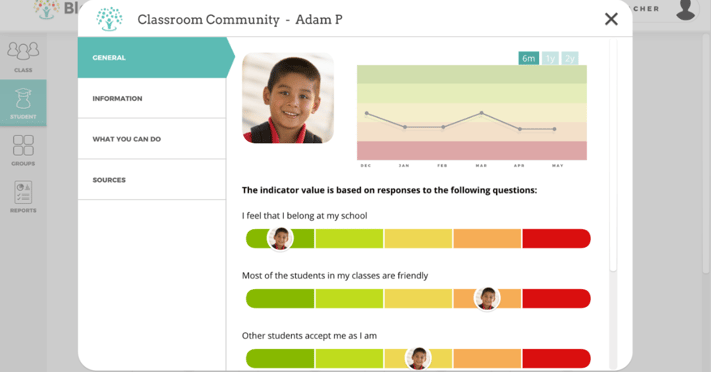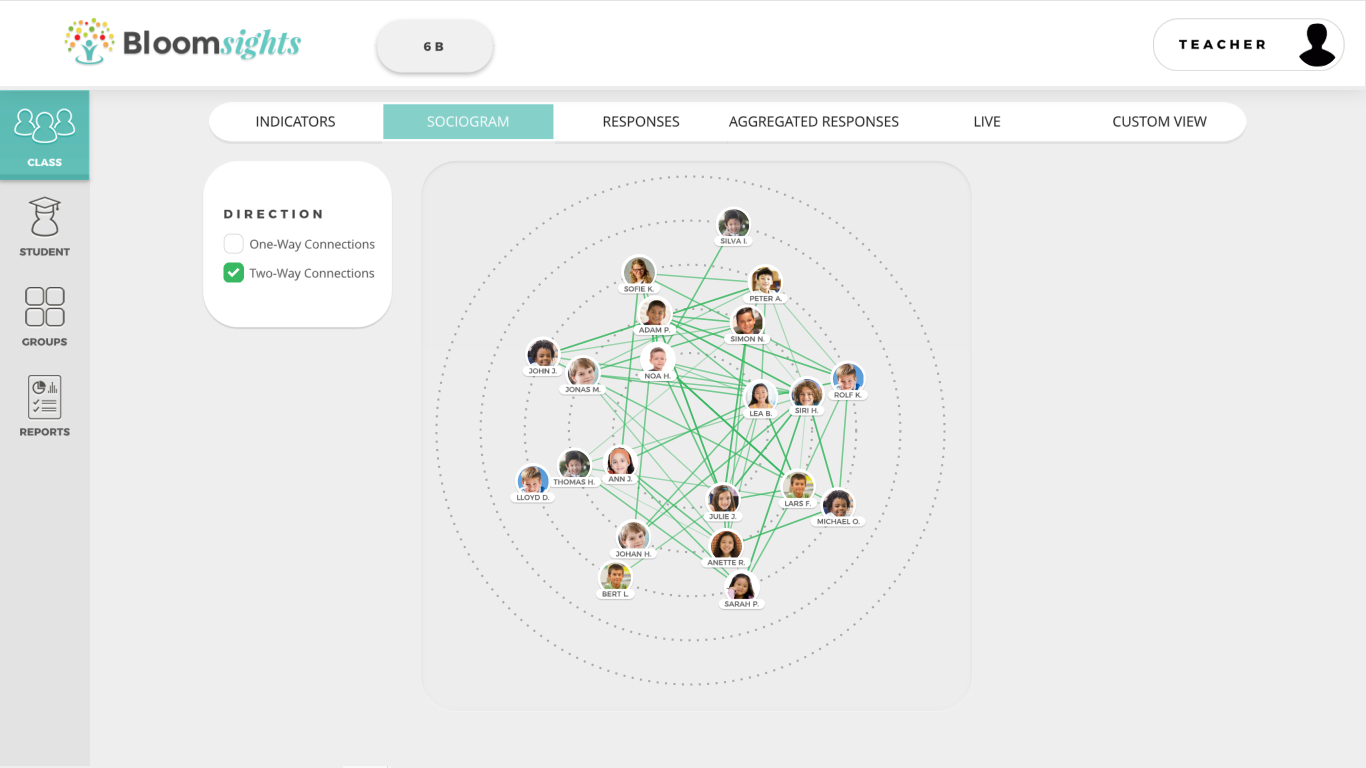
School counselors continuously struggle to adequately assess and monitor students' social emotional needs. Schools need ongoing access to qualitative student data. Fortunately, more student data is being generated now than ever before. But on the downside, counselors and educators are overwhelmed with collecting and analyzing all this data in one easy place. And high-quality data that lets educators and counselors really dig into how their students feel about themselves and about school remains largely unavailable.
The Qualitative Data School Counselors Need
Counselors require a safe and easy way to routinely assess student well-being and school climate. There is a sense of urgency around this–especially coming out of a pandemic–as counselors need to quickly respond to students' needs and determine appropriate interventions. Each student is unique and requires a personalized, meaningful, and insightful plan for optimum success.
Schools nationwide are in great need of social-emotional data that shows how students are feeling–data that informs school counselors to schedule interventions such as student groups, restorative circles, or quick check-ins.
Interventions like monthly check-ins provide vital qualitative data. These ongoing sessions help students to identify and process their emotions and reflect on their school experience. During these sessions, students sometimes share who is part of their social circle and reflect on the different types of connections they have with their classmates. This helps students to envision themselves as part of the classroom community and helps counselors capture the qualitative experiences that are shared.
The Data Tools School Counselors Deserve
Research shows that students are more likely to engage in healthy behaviors and succeed academically when they feel connected to their school. Building a positive learning environment and growing social skills for kids requires that school faculty have a high level of understanding of students' experiences at school–and they need effective tools to achieve this. They need resources that facilitate a continuous process to collect, analyze, and evaluate data for students’ social emotional needs and inform decision making at the student, classroom, and school level.
An effective solution for K-12 schools that simplifies SEL data is Bloomsights. With this digital platform, educators can track students' social emotional needs and the qualitative data is connected to CASEL and ASCA.
Bloomsights equips counselors with tiered prevention and intervention strategies that fit with students’ needs, allowing them more time to provide students with the support they need to thrive. Using creative modalities like interactive sociograms to provide at-a-glance views of the underlying social dynamics at the class and student levels, Bloomsights makes it easier to identify early signs of social isolation, bullying, and other barriers to learning and well-being.

Sociograms show student connections at the grade, class, and individual student levels.
The result is a simplified view of SEL data that gives counselors clarity and frames data use in new ways so that insights gleaned are seen as augmenting rather than replacing counselors’ valuable and intuitive observations. Bloomsights gives access to 16 key indicators of student well-being, which are made readily available to counselors to inform SEL and MTSS practices.
Remember, students feel valued and empowered when their opinions matter. It’s important to simplify your SEL data to fully understand students' needs and get meaningful insights to drive improved student and school outcomes. Schools across the country are using Bloomsights to identify student needs, monitor progress, and even apply for grants.
“Bloomsights provided us with great data on how our students were feeling. As a counselor, I was able to find students that fly under the radar because of their internalizing behavior. Bloomsights has been a great tool to allow me to find students for groups, restorative circles, and some that just needed a quick check in. ”
—Kelly Carroll, elementary school counselor

